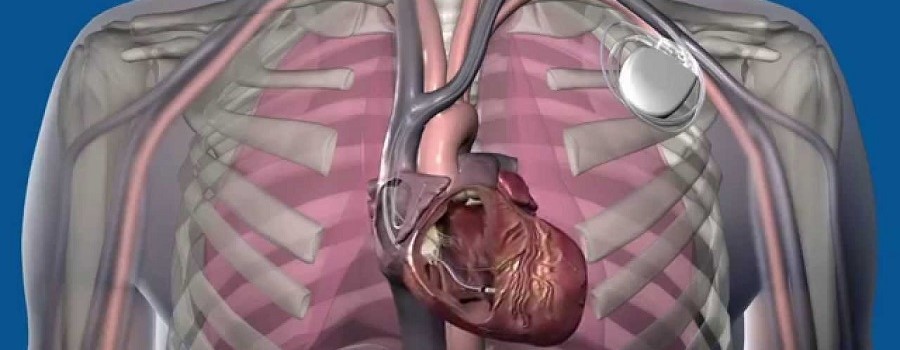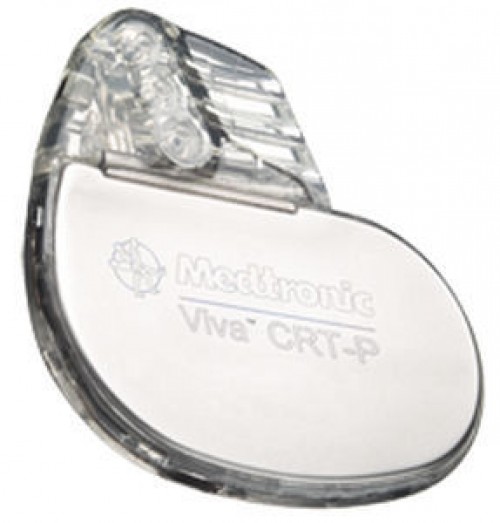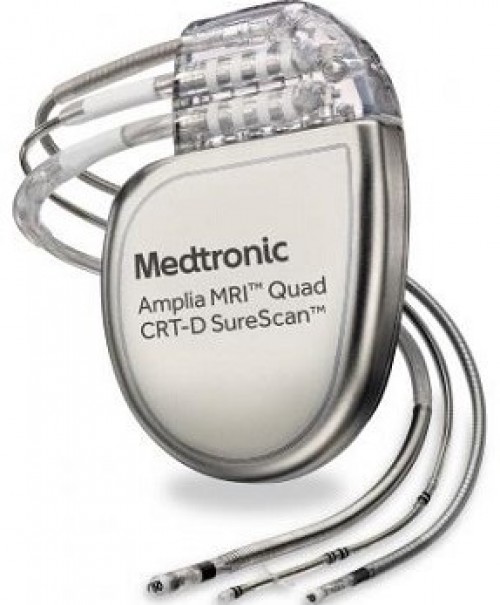Crtd pacemaker implant surgery and cost in india

CRTD PACEMAKER IMPLANT SURGERY AND COST IN INDIA
Do you have multiple options for CRTD Pacemaker Implant Surgery Cost In India in different cities like Delhi, Mumbai, Chennai, Kolkata, and Bangalore? We guide you in choosing the best heart doctor for better results. Below is a shortlisted list of top best cardiac Hospitals in India and Surgeons based on Hospital accreditations, experience & qualification of surgeons, success rates of procedures, and patient testimonials.
WHAT IS THE CRTD IMPLANTATION?
Cardiac resynchronization therapy (CRT) is a procedure to implant a device that can help keep patients alive longer without heart failure. A CRTD device can improve your health. It’s a small electrical impulse to both lower chambers of the heart to help them beat together in a more synchronized pattern, which may improve the heart’s ability to pump blood and oxygen to your body.
Cardiac Resynchronization Therapy Defibrillators (CRT-D) have emerged as life-saving devices for individuals with heart failure and conduction system disorders. These advanced medical devices not only enhance the quality of life for patients but also significantly reduce the risk of sudden cardiac death. In India, where cardiovascular diseases are a leading cause of morbidity and mortality, the demand for CRT-D devices has been on the rise. In this blog, we will delve into the various aspects contributing to the CRTD Pacemaker Implant Surgery Cost In India, exploring factors such as device technology, hospital charges, and overall healthcare infrastructure.
There are two types of cardiac resynchronization therapy devices include:
- Cardiac resynchronization therapy with the pacemaker (CRT-P)- CRTP pacemaker has three leads that connect the pacemaker to the right upper chamber of your heart and both lower chambers ventricles.
- Cardiac resynchronization therapy with the pacemaker and an ICD (CRT-D)- CRTD pacemaker is an implant for a patient with heart failure who also has a risk of sudden cardiac death and may benefit from an ICD. The device monitors the heart's rhythm, detects irregularities, and corrects them with electrical impulses.
WHAT IS THE CRT IMPLANTATION COST IN INDIA?
CRT-D Implantation cost in India starts from 7000 to 25000 USD depending upon the quality of the implant, surgeon's experience, and hospital services. Peace Medical Tourism helps you to guide your best cardiac surgeon for CRTD implants at an affordable cost in Delhi, Mumbai, Bangalore, and Chennai, India. We have a well-organized infrastructure of cardiac hospitals with the best cardiac surgeons, who have successfully formed more than 500 CRTD pacemaker implants in India.
- Single Chamber Pacemaker Cost: 7000 to 9000 USD
- Dual-Chamber Pacemaker Cost: 9000 to 15,000 USD
- Biventricular Pacemaker Cost: 14,000 to 25,000 USD
- Hotel Cost Near Hospital - starting from 18 to 50 USD
- Food Cost - starting from 20 to 30 USD (per day)
- Miscellaneous cost - 20 USD (per day).
Still, have questions? SUBMIT ENQUIRY
Technology and Features:
The cost of CRT-D devices in India is heavily influenced by the technological advancements and features they offer. Modern CRT-D devices come equipped with sophisticated technologies such as adaptive programming, multi-site pacing, and remote monitoring. These features not only improve the efficacy of the device but also contribute to its higher cost. The manufacturers invest in research and development to bring innovations that enhance patient outcomes, and this research cost is reflected in the final price of the CRT-D devices.
Manufacturers and Brands:
Several renowned multinational companies dominate the cardiac device market in India. The choice of brand and manufacturer significantly impacts the cost of CRT-D devices. Established brands with a history of producing reliable and technologically advanced devices often command a higher price. However, competition in the market has led to the introduction of more affordable options from both domestic and international manufacturers, providing a range of choices for patients and healthcare providers.
Hospital Charges:
The overall cost of CRT-D implantation in India includes not only the cost of the device but also hospital charges. Hospitals in different regions may have varying pricing structures, and the reputation and infrastructure of the hospital can influence the overall cost. State-of-the-art facilities with experienced medical teams may charge higher fees for the implantation procedure. Additionally, post-implantation follow-up and monitoring contribute to the overall healthcare expenses.
Government Regulations and Policies:
Government policies and regulations play a crucial role in determining the cost of medical devices in India. Regulatory approvals, import duties, and taxes imposed on these devices can impact their final price. Understanding the regulatory landscape is essential for manufacturers and healthcare providers to navigate the market and ensure compliance with the applicable standards.
Health Insurance Coverage:
The accessibility and affordability of CRT-D devices are also influenced by health insurance coverage. Insurance providers may have different policies regarding coverage for implantable devices, and the extent of coverage can vary. Patients with comprehensive health insurance plans may find a significant portion of the CRT-D cost covered, making the treatment more accessible. However, those without insurance or with limited coverage may face higher out-of-pocket expenses.
Economic Factors:
The overall economic conditions in India, including inflation rates and currency fluctuations, can impact the cost of imported medical devices like CRT-D. Changes in currency values relative to major international currencies may affect the pricing of these devices. Economic stability and government policies aimed at controlling healthcare costs can influence the affordability of CRT-D devices for patients.
Research and Development Costs:
The development of CRT-D technology involves substantial research and development costs for manufacturers. These costs, which include clinical trials, testing, and obtaining regulatory approvals, contribute to the final price of the devices. Manufacturers often strive to recoup these expenses through the sale of their products, influencing the overall cost of CRT-D devices in the market.
Financial Assistance and Insurance Coverage
Given the high cost of CRTD implants, many patients seek financial assistance or rely on health insurance to cover the expenses. Most major health insurance providers in India cover the cost of CRTD implantation, but it’s essential to check the specifics of the policy, such as the extent of coverage, waiting period, and exclusions.
Some government schemes and non-profit organizations also offer financial aid for heart patients who cannot afford the treatment. Patients are encouraged to explore these options to reduce the financial burden.
WHAT ARE THE PROCEDURES FOR CRTD IMPLANTATION?
- The cardiac surgeon will make a small incision of 2 to 3 inches in the upper chest.
- During surgery three leads (thin insulated wires) will be guided through a vein and into the heart with the help of X-ray images.
- The cardiac surgeon will connect the leads to the implanted heart device, test the device, and program all the settings.
- The device will be inserted beneath the skin, while the other end is attached to a pulse generator, which is usually implanted under the skin beneath your collarbone and the chest incision will be closed.
WHAT ARE THE RISK FACTOR OF CRTD IMPLANTATION SURGERY?
- Infection and swelling on the chest
- Bleeding
- Blood vessels damaged
WHAT AFTER CRTD SURGERY?
The patient will stay in the hospital for one to two days after the implantation and 15 days in India for follow-up. After the CRTD surgery, a slight bulge visible found under the skin where the device is located. The patient should monitor whether the incision is healing or not an arm’s motion will be limited until the wound is completely healed. Follow the guidelines of the surgeon.
Post-implantation care and Maintenance
- After the CRTD implantation, patients need regular follow-ups to ensure the device is working correctly and to monitor their heart condition. These follow-ups usually include:
- Device Check-ups: The CRTD device is periodically checked and reprogrammed if necessary to optimize its function.
- Medication Management: Patients need to continue their heart failure medications as prescribed by their doctor.
- Lifestyle Modifications: Adopting a heart-healthy lifestyle, including a balanced diet, regular exercise, and avoiding smoking and alcohol, is crucial for the long-term success of the treatment.
WHAT IS THE SUCCESS RATE OF IMPLANTS?
The pacemaker implantation surgery success rate is around 95%. The battery should last five to 15 years.
WHO IS THE BEST CRTD IMPLANT SURGEON IN INDIA?
Click the below link for more details:
- DR.SUBASH CHANDRA – Cardiologist
- DR.ASHOK SETH - Cardiologist
- DR.YUGUL K. MISHRA – Cardiac Surgeon
- DR.SANDEEP ATTAWAR – Cardiac Surgeon
- DR.K K TALWAR – Cardiologist
- DR.ATUL MATHUR – Cardiologist
- DR.AJAY KAUL – Cardiac Surgeon
- DR.Col. KUMUD RAI – Cardiac Surgeon
- Dr. Viveka Kumar - Max Hospital cardiologist
- Dr. S. K. Gupta - Apollo Hospital
- Dr. Deepesh Venkatraman - Global HospitaL
- Dr. Kuldeep Arora - Artemis Hospital Gurgaon
WHICH HOSPITAL IS BEST FOR CRTD IMPLANTS IN INDIA?
Click the below link for more details:
- MANIPAL HOSPITAL
- BLK HOSPITAL
- MAX HOSPITAL
- JAYPEE HOSPITAL
- APOLLO HOSPITAL
- FORTIS ESCORT HOSPITAL
- GLOBAL HOSPITAL
- HCG CANCER HOSPITAL
- ARTEMIS HOSPITAL
- MEDANTA HOSPITAL
Conclusion:
In conclusion, the cost of Cardiac Resynchronization Therapy Defibrillators (CRT-D) in India is a multifaceted subject influenced by various factors. Technological advancements, brand reputation, hospital charges, government regulations, health insurance coverage, economic conditions, and research and development costs collectively contribute to the pricing of these life-saving devices. As the demand for CRT-D devices continues to grow in India, it becomes essential for healthcare stakeholders, policymakers, and manufacturers to work collaboratively to ensure the accessibility and affordability of these critical medical interventions for patients in need.
Still, have questions? SUBMIT ENQUIRY
Contact Us –
Mohmmad Tarique
WhatsApp/viber/telegram - + 91 9582 708 782 / + 91 9999 211 359
Email – treatmentquery@gmail.com
Web – www.peacemedicaltourism.com

